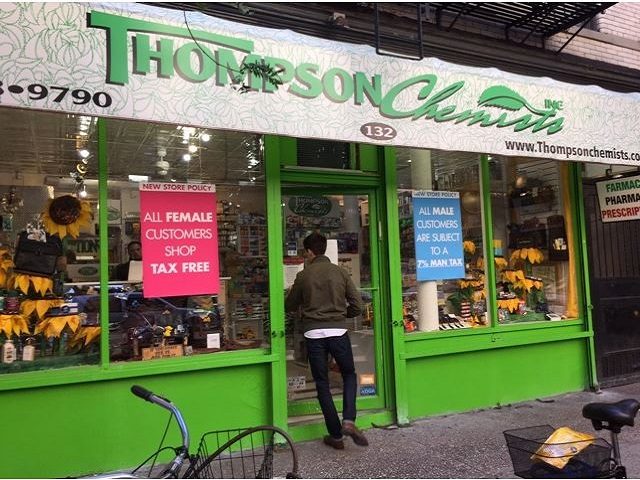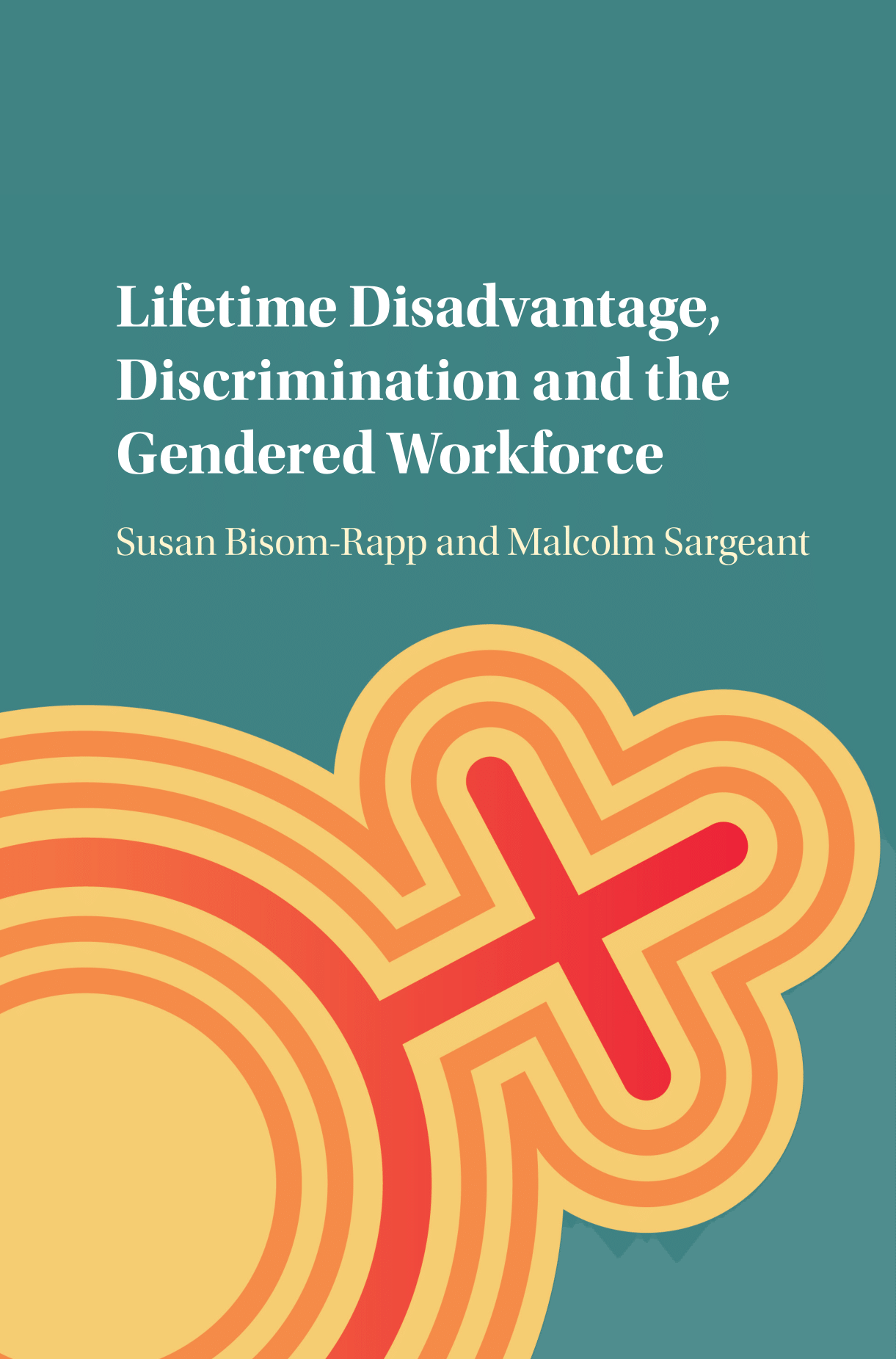Canadian Journal of Women and the Law/Revue Femmes et Droit
Volume 28, Issue 2, August 2016
Missing and Murdered Indigenous Women Conference / Symposium sur Meurtres et disparitions de femmes et de filles autochotones
CJWL online – http://bit.ly/cjwl282
Project MUSE – http://bit.ly/cjwl282pm
EDITORIAL / ÉDITORIAL
Sexualized Violence and Colonialism: Reflections on the Inquiry into Missing and Murdered Indigenous Women
Sherene H. Razack
Canadians live in a society where missing and murdered Indigenous women are so commonplace an occurrence that, for two years now, volunteers have organized to dredge the river that runs through the city of Winnipeg looking for the bodies of Indigenous girls and women who have disappeared. “Drag the Red,” as this organization is called, has yet to find any bodies, but its dredging operations often catch women’s underwear.1 The sheer horror of the prospect of Indigenous girls and women lying at the bottom of the river, a river that volunteers dredge, has yet to hit most Canadians, but, in 2015, Canadians elected a government that announced its intention to hold a national inquiry into missing and murdered Indigenous women, women who are unaccounted for across the country.
This issue came together after a symposium, jointly organized by the Canadian Journal of Women and the Law and the Canadian Feminist Alliance for International Action, in partnership with the Native Women’s Association of Canada on 30–31 January 2016, explored the prospect of a national inquiry. Indigenous women leaders, family members of missing and murdered women, academics, and activists, joined by six human rights experts from the United Nations and the Inter-American Commission on Human Rights, came together to explore what an inquiry into missing and murdered Indigenous women could accomplish…. http://bit.ly/cjwl282a
Violence sexualisée et colonialisme : réflexions relatives à l’enquête sur les femmes autochtones disparues et assassinées
Sherene H. Razack
Les Canadiennes et Canadiens vivent dans une société où la disparition et le meurtre de femmes autochtones sont tellement monnaie courante que, depuis maintenant deux ans, des bénévoles draguent la rivière qui traverse Winnipeg dans l’espoir d’y retrouver des corps de filles et de femmes autochtones disparues. « Drag the Red » (draguer la Rouge), le nom de l’organisation, n’a pas encore trouvé de corps, mais ses travaux de dragage ont souvent permis de ramasser des sous-vêtements féminins1. En général, les Canadiennes et Canadiens n’ont pas encore saisi à quel point c’est une horreur sans nom de penser que des filles et des femmes autochtones gisent au fond de cette rivière que draguent des bénévoles, mais en 2015, ils ont élu un gouvernement qui a annoncé son intention de mener une enquête nationale sur les femmes et les filles autochtones disparues et assassinées qui manquent à l’appel dans tout le pays.
Ce numéro spécial de la revue est issu d’un symposium tenu les 30 et 31 janvier 2016 et organisé conjointement par la Revue Femmes et droit et l’Alliance canadienne féministe pour l’action internationale, en partenariat avec l’Association des femmes autochtones du Canada, qui évoquait la possibilité d’une enquête nationale. Des leaders autochtones, les familles des femmes disparues ou assassinées, des universitaires et des militantes, avec six experts en droits de la personne des Nations Unies et de la Commission interaméricaine des droits de l’homme, examinaient ce que pourrait accomplir une enquête sur les filles et les femmes autochtones disparues ou assassinées.
… http://bit.ly/cjwl282b
ARTICLES / ARTICLES
Shining Light on the Dark Places: Addressing Police Racism and Sexualized Violence against Indigenous Women and Girls in the National Inquiry
Pamela Palmater
Canada has had a long-standing problem with both societal and institutional racism against Indigenous peoples, especially within the justice system. Numerous national inquiries, commissions, and investigations have all concluded that every level of the justice system has failed Indigenous peoples. More recent inquiries indicate that racism against Indigenous peoples is particularly problematic in police forces in Canada. Yet, despite the evidence, little has been done in Canada to act on the recommendations. This has resulted in the over-incarceration of Indigenous peoples, numerous deaths of Indigenous peoples in police custody, and the national crisis of thousands of murdered and missing Indigenous women and girls. This article seeks to highlight the lesser-known problem of police-involved racialized and sexualized abuse and violence against Indigenous women and girls as a root cause of the large numbers of murdered and missing Indigenous women and girls in Canada. It is argued that an in-depth look at police-involved disappearances, sexual assaults, and murders of Indigenous women should be included in a national inquiry into the high rates of murdered and missing Indigenous women and girls. It is hoped that such an investigation under the national inquiry will result in evidence-based analysis and recommendations for legislative and policy-based changes that are consistent with the human rights protections afforded Indigenous women and girls and with the calls for action by Canada’s Truth and Reconciliation Commission, various United Nations human rights bodies, and the families, communities, and nations of the Indigenous victims. http://bit.ly/cjwl282c
Gendering Disposability
Sherene H. Razack
In 2011, thirty-six-year-old Cindy Gladue, a Cree woman, bled to death in a hotel bathtub in Edmonton, Alberta, Canada. On the night she died, Gladue had contracted for sexual exchange with Bradley Barton, a white man who worked as a trucker. In 2015, Barton was tried for the murder of Cindy Gladue. With more than 1,200 missing and murdered Indigenous women, there is compelling reason to focus on the violence Barton inflicted on Gladue, understanding it as a part of a history of the sexual brutalization and attempted annihilation of Indigenous women. To show that Gladue’s death and the trial of Barton for her murder are part of a history of colonial terror, it is necessary to unpack the framework utilized by the court, a framework that revolved around the ideas of consent and contract. I propose that we utilize a framework of disposability instead, focusing on the Indigenous woman’s expendibility in settler colonialism. Sexualized violence is key to disposability, and flesh is the site at which racial and sexual power are both inscribed. I emphasize the excessive violence that is meted out to Indigenous women as evidence of colonial power imprinted on their bodies. http://bit.ly/cjwl282d
A Long Road Behind Us, a Long Road Ahead: Towards an Indigenous Feminist National Inquiry
Cherry Smiley
Since the invasion of North America by white male colonizers, Indigenous women and girls have been constructed as homogenized and dehumanized “Indian princesses” and “savage squaws.” These constructions, albeit false, have real consequences, resulting in disproportionate rates of male violence against Indigenous women and girls in the context of a contemporary for-profit rape culture. In 2015, the Canadian federal government announced a long-awaited inquiry into violence against Indigenous women and girls. This article recommends an expressly Indigenous feminist framework in order to comprehensively address the issue of male violence against Indigenous women and girls in a national inquiry. http://bit.ly/cjwl282e
Indian Act Sex Discrimination: Enough Inquiry Already, Just Fix It
Gwen Brodsky
This article links ongoing historical sex discrimination in the Indian Act to the high levels of violence against Indigenous women. The status provisions have been recognized as an underlying cause contributing to the existing vulnerabilities that make Indigenous women more susceptible to violence. Addressing violence against Indigenous women will be impossible unless and until the underlying discrimination is also comprehensively addressed. The author further contends that fixing the Indian Act does not require waiting for an inquiry. Successive federal governments have been well aware of the ongoing sex discrimination under the Act and its implications for Canada’s human rights record. The article concludes by calling for the immediate amendment of the status provisions in the Indian Act once and for all. http://bit.ly/cjwl282f
Missing and Murdered Indigenous Women Crisis: Technological Dimensions
Jane Bailey and Sara Shayan
This article considers how digital technologies are informed by, and implicated in, the systematic and interlocking oppressions of colonialism, misogyny, and racism, all of which have been identified as root causes of the missing and murdered Indigenous women crisis in Canada. The authors consider how technology can facilitate multiple forms of violence against women—including stalking and intimate partner violence, human trafficking, pornography and child abuse images, and online hate and harassment—and note instances where Indigenous women and girls may be particularly vulnerable. The authors also explore some of the complexities related to police use of technology for investigatory purposes, touching on police use of social media and DNA technology. Without simplistically blaming technology, the authors argue that technology interacts with multiple factors in the complex historical, socio-cultural environment that incubates the national crisis of missing and murdered Indigenous women and girls. The article concludes with related questions that may be considered at the impending national inquiry. http://bit.ly/cjwl282g
Balancing Transparency and Accountability with Privacy in Improving the Police Handling of Sexual Assaults
Amy Conroy and Teresa Scassa
This article considers the potential for the adoption in Ontario of a model, developed in Philadelphia and implemented in other US cities, that has proven successful in significantly improving police handling of sexual assault cases and public confidence in the system. This model directly involves front-line sexual assault victim advocates working with police in systematic reviews of police sexual assault records, with a particular focus on “unfounded” cases. Resistance to the adoption of this model in Canada has focused on arguments around public sector privacy legislation. We therefore explore the Philadelphia model through a transparency and accountability lens in the Canadian context. We suggest that the concepts of “transparency” and “accountability” are too often conflated with the disclosure of data or information through access to information channels, and we argue for a more robust understanding of these concepts. We also argue that the conventional access to information model should not be allowed to obstruct meaningful transparency and accountability by using privacy arguments to create barriers to change. http://bit.ly/cjwl282h
Public Inquiries and Law Reform Institutions: “Truth Finding” and “Truth Producing”
Nathalie Des Rosiers
This article examines how the Murdered and Missing Indigenous Women and Girls Inquiry (MMIWGI) will be evaluated and what it means for its design and ambitions. It argues that a public inquiry, like a law reform body, must aim to be a “truth-finding” body as well as a “truth-producing” enterprise. It must understand itself as wanting to create the right leverage so that meaningful changes can occur, irrespective of whether its recommendations are immediately adopted or not. It can accomplish such a goal by having a process that becomes the message, by ensuring that it does not get derailed, and by proposing recommendations that set the stage for change, such as addressing the accountability vacuum and aiming to design a process that models the values and behaviour that it wants other institutions to adopt. http://bit.ly/cjwl282i
The Berger Inquiry in Retrospect: Its Legacy
Stephen Goudge
The following article was originally presented as the inaugural lecture of the Willms and Shier Speaker Series in Environmental Law, in collaboration with the Centre for Environmental Law and Global Sustainability in the Faculty of Law at the University of Ottawa on 29 September 2015 by the Honourable Justice Stephen T. Goudge. Reflecting on the lessons and impacts of the McKenzie Valley Pipeline Inquiry, chaired by then Justice Thomas Berger, the article considers the lasting impact of the Berger Inquiry forty years later, including the successful recommendation to abandon plans to develop the north slope of the Yukon, in favour of conservation. The Berger Inquiry has had lasting social impacts by contributing to the rise of a collective northern voice and highlighting the fundamental importance of Indigenous interests in charting the future. In his postscript, Justice Goudge adds his hope that the Missing and Murdered Indigenous Women Inquiry will emulate the Berger Inquiry in three fundamental ways: by developing inquiry processes that build trust among those most affected; by proposing expeditious and timely recommendations; and, most importantly, by doing what is right. http://bit.ly/cjwl282j
The National Inquiry on Murders and Disappearances of Indigenous Women and Girls Recommendations from the Symposium on Planning for Change: Towards a National Inquiry and an Effective National Action Plan
Feminist Alliance for International ActionNative Women’s Association of Canada
On 30–31 January 2016, the Native Women’s Association of Canada, the Canadian Feminist Alliance for International Action, and the Canadian Journal of Women and the Law convened a symposium in Ottawa to engage in dialogue about the upcoming national inquiry on the murders and disappearances of Indigenous women and girls. Forty Indigenous women leaders, family members of murdered and disappeared women, academics, and allies were joined by six human rights experts from the United Nations and the Inter-American Commission on Human Rights. This document is distilled from presentations and dialogue at the symposium…. http://bit.ly/cjwl282k
L’enquête nationale sur les meurtres et disparitions de femmes et de filles autochtones
Document final du Symposium sur les Meurtres et disparitions de femmes et de filles autochtones planifier le changement : Vers une enquête nationale et un Plan d’action national efficace
Feminist Alliance for International ActionNative Women’s Association of Canada
L’Association des femmes autochtones du Canada, l’Alliance canadienne féministe pour l’action internationale et la Revue Femmes et droit ont organisé à Ottawa, les 30 et 31 janvier 2016, un symposium en vue d’entamer un dialogue au sujet de l’enquête nationale à venir sur les meurtres et disparitions de femmes et de filles autochtones. Quarante leaders féminines autochtones, des membres des familles des femmes et des filles disparues et assassinées, des universitaires et des alliés ont été rejoints par cinq expertes en droits de la personne des Nations Unies et un expert de la Commission interaméricaine des droits de l’homme. Le présent document est issu des présentations et des dialogues qui ont eu lieu pendant le Symposium. … http://bit.ly/cjwl282l
BOOK REVIEWS / CHRONIQUES BIBLIOGRAPHIQUES
Re-Imagining an Agentic Ashley: Looking for Ashley: Re-Reading What the Smith Case Reveals about the Governance of Girls, Mothers and Families in Canada by Rebecca Jaremko Bromwich
Josephine L. Savarese
http://bit.ly/cjwl282r
Dying from Improvement: Inquests and Inquiries into Indigenous Deaths in Custody by Sherene H. Razack
Sarah Buhler
http://bit.ly/cjwl282r2
Information posted originally for Canadian Journal of Women and the Law by T. Hawkins.
 ous moments over the years to interest law firms in filing a class action. (When I lived and worked in California, I also researched a case there.) In early 2016, I began to see articles in the media about the unfairness of the tax, many of which were forwarded to me by friends who had heard me talk about this issue. I reached out to Jennifer Weiss-Wolf, the most prolific and organized “menstrual equity” advocate (and coiner of that term), and asked if she thought a class action could help the cause. She was very supportive and I sought out Ilann Maazel, at the law firm Emery Celli Brinckerhoff & Abady LLP, who agreed to represent the plaintiffs who wanted to file the complaint.
ous moments over the years to interest law firms in filing a class action. (When I lived and worked in California, I also researched a case there.) In early 2016, I began to see articles in the media about the unfairness of the tax, many of which were forwarded to me by friends who had heard me talk about this issue. I reached out to Jennifer Weiss-Wolf, the most prolific and organized “menstrual equity” advocate (and coiner of that term), and asked if she thought a class action could help the cause. She was very supportive and I sought out Ilann Maazel, at the law firm Emery Celli Brinckerhoff & Abady LLP, who agreed to represent the plaintiffs who wanted to file the complaint.


 Earlier this week, members of
Earlier this week, members of  Lifetime Disadvantage, Discrimination and the Gendered Workforce fills a gap in the literature on discrimination and disadvantage suffered by women at work by focusing on the inadequacies of the current law and the need for a new holistic approach. Each stage of the working life cycle for women is examined with a critical consideration of how the law attempts to address the problems that inhibit women’s labour force participation. By using their model of lifetime disadvantage, the authors show how the law adopts an incremental and disjointed approach to resolving the challenges, and argue that a more holistic orientation towards eliminating women’s discrimination and disadvantage is required before true gender equality can be achieved. Using the concept of resilience from vulnerability theory, the authors advocate a reconfigured workplace that acknowledges yet transcends gender.
Lifetime Disadvantage, Discrimination and the Gendered Workforce fills a gap in the literature on discrimination and disadvantage suffered by women at work by focusing on the inadequacies of the current law and the need for a new holistic approach. Each stage of the working life cycle for women is examined with a critical consideration of how the law attempts to address the problems that inhibit women’s labour force participation. By using their model of lifetime disadvantage, the authors show how the law adopts an incremental and disjointed approach to resolving the challenges, and argue that a more holistic orientation towards eliminating women’s discrimination and disadvantage is required before true gender equality can be achieved. Using the concept of resilience from vulnerability theory, the authors advocate a reconfigured workplace that acknowledges yet transcends gender. The Wisconsin Journal of Law, Gender & Society has announced its 2017 symposium and this Call for Papers:
The Wisconsin Journal of Law, Gender & Society has announced its 2017 symposium and this Call for Papers:




 Is there nothing that escapes commercialization? A U.K. company called
Is there nothing that escapes commercialization? A U.K. company called  This week the Appellate Court of Illinois, Fifth District, has served up some very quotable dicta. The court affirmed the dismissal of a putative class action against Papa Murphy’s International, a pizza franchisor, and a local franchisee, located in Edwardsville, Illinois. The plaintiff in
This week the Appellate Court of Illinois, Fifth District, has served up some very quotable dicta. The court affirmed the dismissal of a putative class action against Papa Murphy’s International, a pizza franchisor, and a local franchisee, located in Edwardsville, Illinois. The plaintiff in  Here’s the dicta from
Here’s the dicta from 
 It started with Dr. Susannah Heschel. The story you may have heard goes something like this: After a lecture given in Miami Beach, a man (usually Orthodox) stood up and angrily denounced feminism, saying that a woman belongs on a bima (pulpit) the way an orange belongs on a Seder plate. To support women’s rightful place in Jewish life, people put an orange on their Passover tables.
It started with Dr. Susannah Heschel. The story you may have heard goes something like this: After a lecture given in Miami Beach, a man (usually Orthodox) stood up and angrily denounced feminism, saying that a woman belongs on a bima (pulpit) the way an orange belongs on a Seder plate. To support women’s rightful place in Jewish life, people put an orange on their Passover tables.